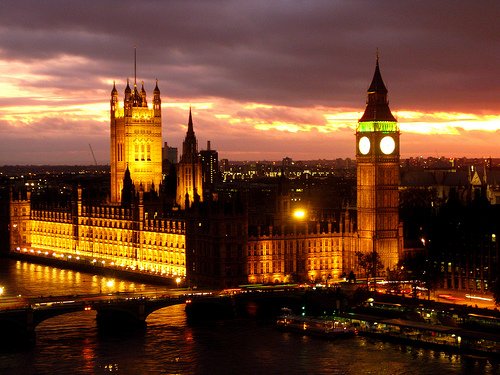What are the consequences of the Brexit for Europe & the USA?
Quick presentation
Hello everybody! It's my first post on steemit so I'll go with a quick intro : I'm a student in economics and I want to make economics related news clearer for the broader audience. So I'll try to put up content that helps to make sense of what's going on. The target is to appeal to both newies and more experienced readers about that subject. I want to establish the facts but I still have my own opinion on each matter, as for any piece of information, take it with a grain of salt ;) Now that we're done with the civilities, let's go!
Intro
I think you have heard about it as much as I did and you probably hate the word by now, we're going to talk about the #Brexit today. To have some context here, there was a referendum which is a vote about a question with two different outcomes people have to choose from. It's usually "Yes" or "No" but this time it was "Leave" or "Remain" (talking about the European Union a.k.a EU). The Brits decided to leave the #EU. First, you have to know that the result of a referendum isn't law, so the politicians in charge do not have to follow it. Considering nothing has been signed yet, I'll say there's still an existing possibility that the actual Brexit doesn't happen even though I doubt it.
We heard a lot about what would happen to the United Kingdom (UK) when leaving but what's going on in #Europe and the #US? Does it matter? Well let's get to work and see if it does.
What are the consequences ?
Firstly, the UK is the fifth/sixth (depending on the measurment tools) largest economy in the world and the second one in the EU, behind Germany. In 2015, the British participation to the 145 billions euros of the EU budget was a bit less than 11B euros. The cost of the UK leaving the EU as one of the main economies taking part in the budget, would be quite heavy : it would burden the other richer countries with a larger contribution and diminish the redistribution to poorer countries of the Union. Also, leaving means that one of the most liberal (economically speaking) member won't be part of the decision making process of the many European policies anymore. It would center the decisional power in the hands of Germany and France, mainly.
Secondly, the UK-EU are extremely entangled with each other and they share a lot of their imports and exports. Even though the EU is a greater commercial partner for the UK than the opposite, it's still a really big deal and the existing treaties are very efficient. Those treaties were made along years of trades and not being part of the European market means that new deals must be created and approved, considering the diverging interests of both parties and the new taxes the UK will have to face to enter the European market. Moreover, even though the UK isn't part of the Euro-zone (the countries using the euro currency), the uncertainty around the future of the commercial relationships within Europe will probably shave 0,5% off Euro-zone's GDP (Gross domestic product) according to BNP Paribas (a big European bank).
Thirdly, the ECB (European Central Bank) decided not to use more monetary easing in reaction to the Brexit. Simply put, monetary easing means injecting more money into the economy which in reaction should lower the interest rates. The ECB has been doing it for awhile now and it doesn't work anymore since we are in what is called a liquidity trap. It's a term used to describe the fact that the interest rates are so low that monetary easing doesn't have any effect anymore. This is important because it's a great tool to lower interest rates to make national debts more bearable on a national level, for example. Or, to give incentives to companies to borrow money and stimulate their activities. Since it doesn't work and we're in a low economic growth phase, it's a big deal.
So, both the EU and the Euro-zone are threatened by the Brexit and the negotiations haven't even started yet. It means that even if it's in both parties' involved interest to strike a deal as fast as possible, the EU can't be too compliant with the UK since it would send a signal of weakness around the world and maybe show other European countries that exiting doesn't have lots of consequences.
Finally, the UK, the city of London to be precise is the first financial center in the world. The main advantage for companies to have their headquarters (HQ) in the City is simple : they can enjoy lower taxes and skilled financial services and entering the European market at the same time. This won't be the case anymore when Great Britain decides to leave. There will be some competition and pressure on both sides. London will want to lower its taxes again to stay attractive to international firms and some continental financial places will try to become the new centers for Europe. Thus, leading most likely to a less regulated financial market and intense negotiations.
For the US, the consequences aren't that grave but it will have an impact. Most commercial treaties are negotiated with the support of the UK during EU-US talks, that's an ally that won't have any decisional power anymore which is relevant seeing that many European nations find the American deals to be too unregulated. Furthermore, the uncertainty weakens the British pound and the euro, making American exports to Europe more difficult. It wouldn't be too big of a deal but the economic growth is weak and it will put pressure on the US export sector, impacting the people working in that particular sector.
What's next?
Short term forecasts aren't that bright and many variables aren't clear yet. The outcome of the situation will depend on the negotiations and different deals to come, the economic conjuncture and the reaction of other European countries to this unprecendented event.
On a personal note, I think the Brexit as it happened was a wrong move. The idea of a Brexit isn't right or wrong in my eyes but the conditions in which the vote happened aren't fair to the average person. Mainly because the UK has no plan to deal with the aftermath of the vote and will have to build everything from the ground up. Also, the referendum was said to be the most democratic of all methods but I do not think it's true. Because a very complex question has to be answered by a "Yes" or "No", it doesn't leave any space for nuances and discussion. Also, the fact that many people weren't informed properly of the reason of the referendum, the role of the UK in Europe and the consequences of leaving in general lead to a vote motivated by passion and feelings rather than education and information.
I'm on the side of the people and I believe many were mislead on their way to the voting booth and will have to suffer the consequences, good or bad, with much more intensity than any of the politicians involved in the campain.
The EU has come to an important place though, many folks don't understand how it's working, some institutions have a questionable efficiency and sometimes the voting system makes for undemocratic ruling. The EU is more than a economic area, it used to be a dream to unite the nations. With the UK on its way out, the EU has to consider changing some of its rules and ways. I think Europe needs more, not less EU, but a different one.

Thanks for your attention, I hope to get many constructive comments and hear new ideas!
Stay Curious!
#steemit #Brexit #UK #EU #US #economics #news #politics #education #information #world #learn #curious

